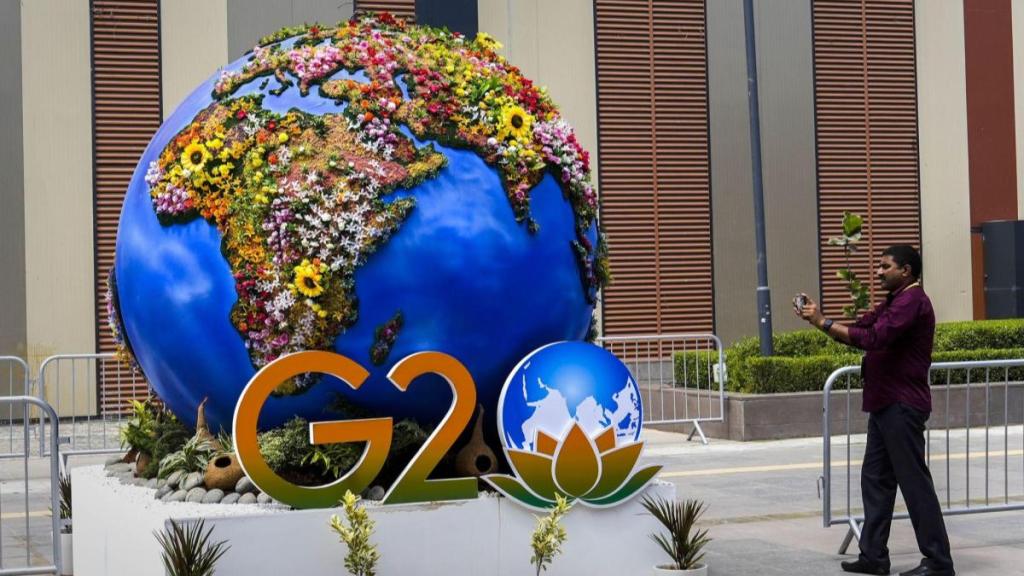In today’s world, the message couldn’t be clearer: prioritizing peace over war is imperative. India’s G20 presidency has emphasized the idea of “One Earth, One Family, One Future,” signifying our shared destiny. This message, embodied in the New Delhi Declaration adopted at the G20 Summit, underscores India’s commitment to strong, sustainable, and inclusive growth, with a focus on green sustainability.
At a special briefing in New Delhi, External Affairs Minister S Jaishankar conveyed the essence of this declaration, emphasizing that the G20 condemns terrorism in all its forms as a grave threat to global peace. The G20 member nations expressed deep concern over the suffering caused by wars and conflicts worldwide. The war in Ukraine, in particular, drew attention, with a reiteration of national positions and resolutions from the UN Security Council and General Assembly. The message was clear: states should refrain from using force to acquire territory, and the use of nuclear weapons is unacceptable.
According to the New Delhi Leaders’s Declaration, the G20 acknowledges that while it primarily focuses on economic cooperation, geopolitical and security issues can significantly impact the global economy. The war in Ukraine has brought about widespread human suffering and adverse effects on food and energy security, supply chains, financial stability, inflation, and growth. This complex situation has hindered progress toward the Sustainable Development Goals, especially in developing and least developed countries.
Recognizing the urgency of the situation, the G20 commended Türkiye and UN-brokered initiatives related to food transportation and called for their swift implementation. This is vital to meet the demand for grain, foodstuffs, and fertilizers in developing countries, particularly in Africa.
The G20 members also stressed the importance of maintaining food and energy security by urging an end to military destruction and attacks on critical infrastructure. They expressed deep concern about conflicts’ adverse impact on civilian security, exacerbating socio-economic vulnerabilities and hampering humanitarian responses.
International law, including territorial integrity, sovereignty, and international humanitarian law, should be upheld by all states. The peaceful resolution of conflicts through diplomacy and dialogue is deemed crucial. According to the Declaration the G20 commits to addressing the global economic impact of the war and welcomes any constructive initiatives supporting a comprehensive, just, and lasting peace in Ukraine.
Huge Success!
The adoption of the New Delhi Declaration represents a significant achievement during India’s G20 presidency. PM Modi expressed gratitude to all those involved in building consensus among member states. Despite challenges posed by divisions over the Russia-Ukraine conflict, India’s presidency has been notably ambitious, with over 100 substantive outcomes.
What happened behind the Scenes?
The process leading to this historic consensus wasn’t without hurdles. Negotiators initially struggled to find common ground on the Ukraine issue during the G20 sherpa meeting in Haryana. Fearing that the summit might end without a joint declaration, India proposed a new paragraph on the Ukraine conflict. This paragraph gained acceptance among the group leaders, albeit after tough discussions.
100 percent consensus
The consensus reached at the G20 Summit is seen as a remarkable achievement, especially considering the differences among member countries regarding Russia’s involvement in Ukraine. Russia and China had previously advocated for the G20 to focus solely on economic matters, leaving the Ukraine issue to the United Nations Security Council. However, a compromise was eventually reached, avoiding provocative language and emphasizing the pursuit of a peaceful solution. India consistently championed diplomacy as the preferred approach to modern conflicts.
The New Delhi Declaration calls on all states to uphold international law principles, including territorial integrity and sovereignty. It underscores the importance of peaceful conflict resolution, diplomacy, and dialogue.
Throughout India’s G20 presidency, disagreements with Russia and China over references to the Ukraine conflict posed challenges. Key meetings, including those involving finance and foreign ministers, often struggled to produce consensus documents due to opposition from these two countries. Despite these obstacles, India’s presidency has left a lasting mark, emphasizing the importance of unity and diplomacy in addressing global challenges.
In conclusion, the New Delhi Declaration adopted at the G20 Summit under India’s presidency sends a strong message of global unity and commitment to peace. It emphasizes the urgency of addressing the humanitarian and economic consequences of the war in Ukraine while underlining the importance of diplomacy and adherence to international law. India’s ambitious presidency has navigated challenges and ultimately succeeded in fostering consensus among member states, making a significant contribution to international cooperation.


